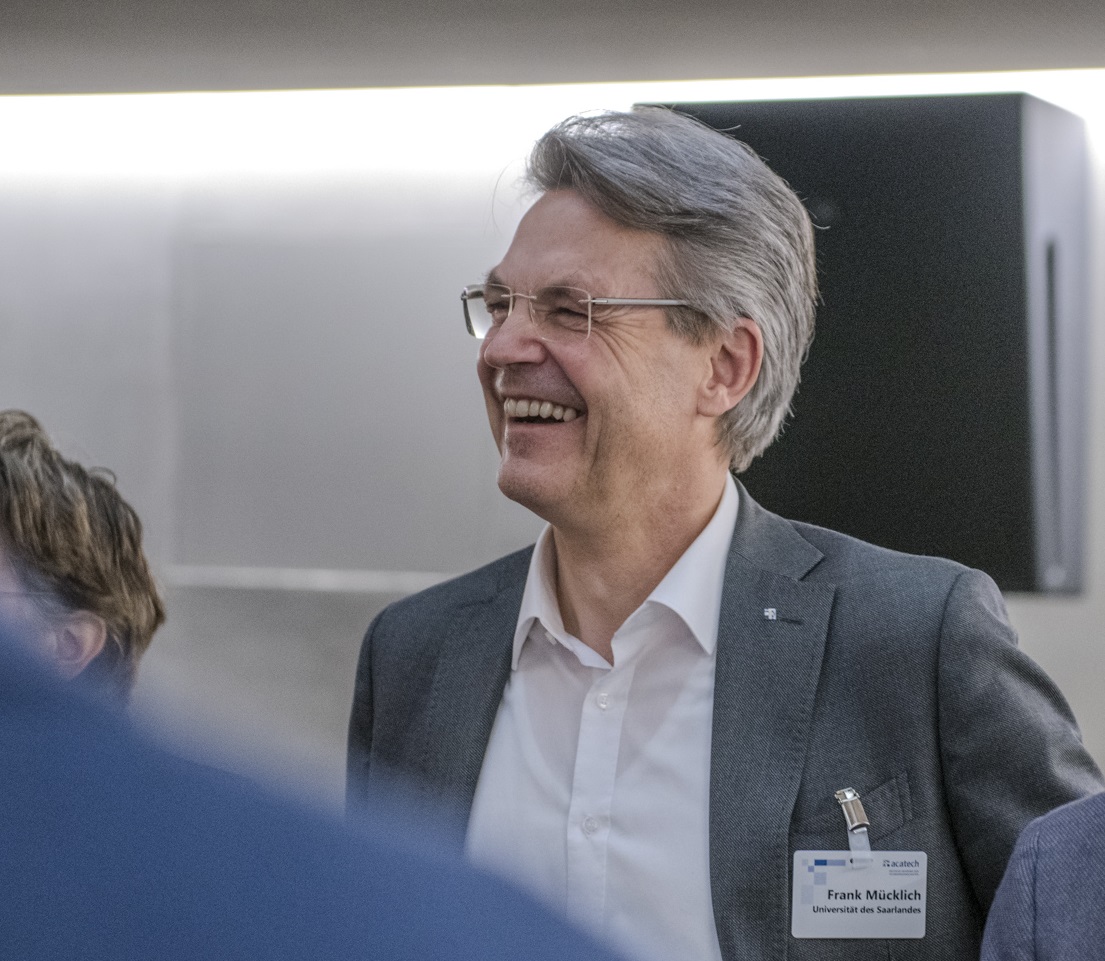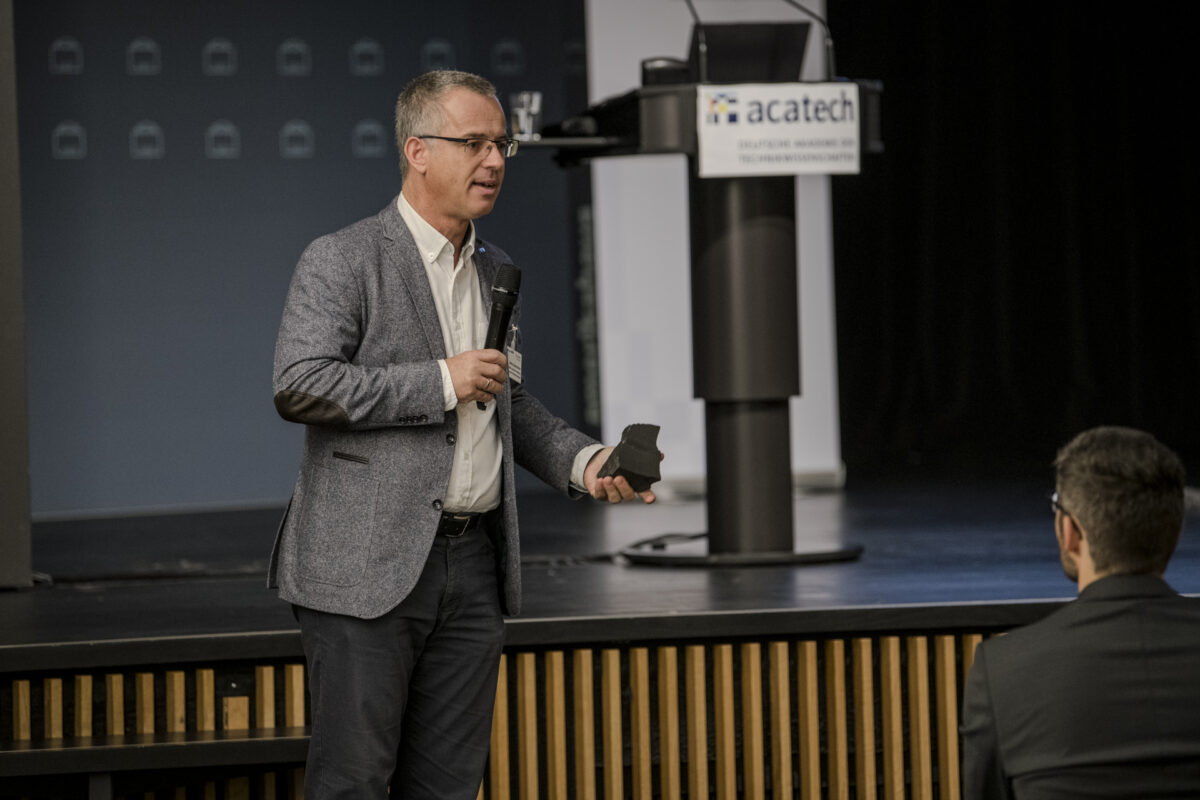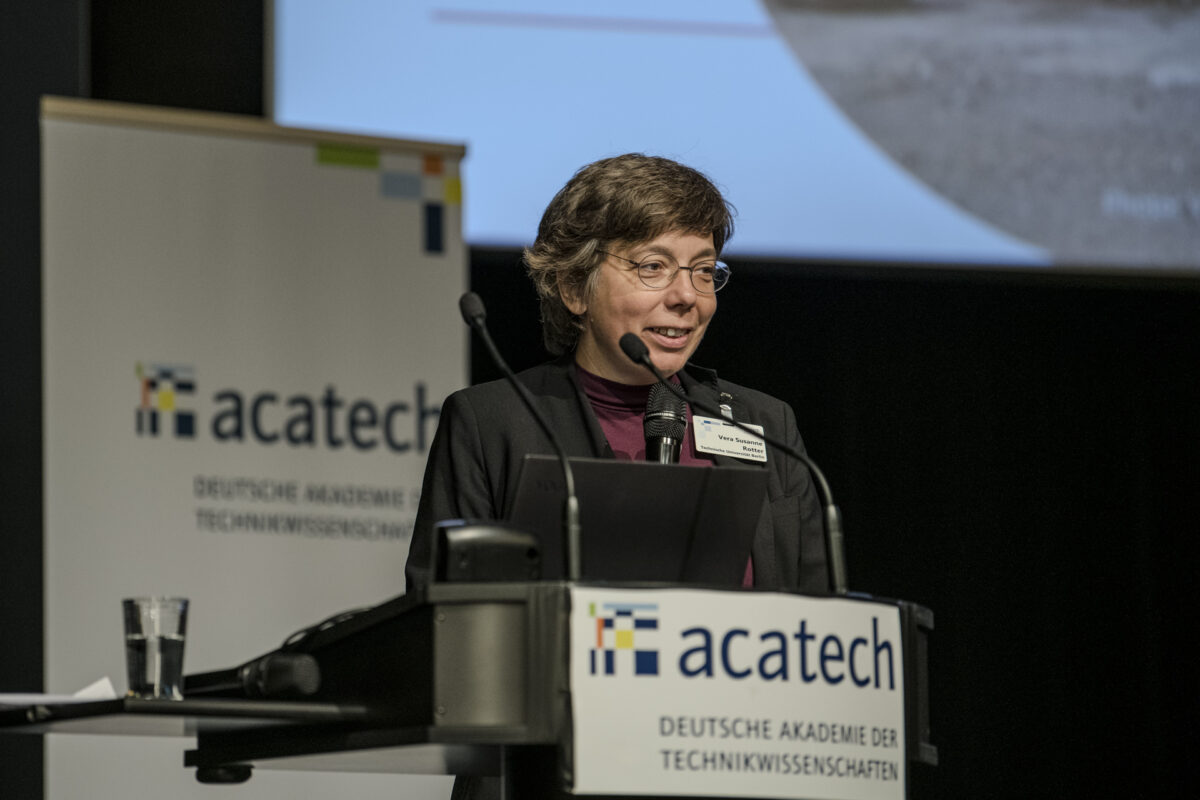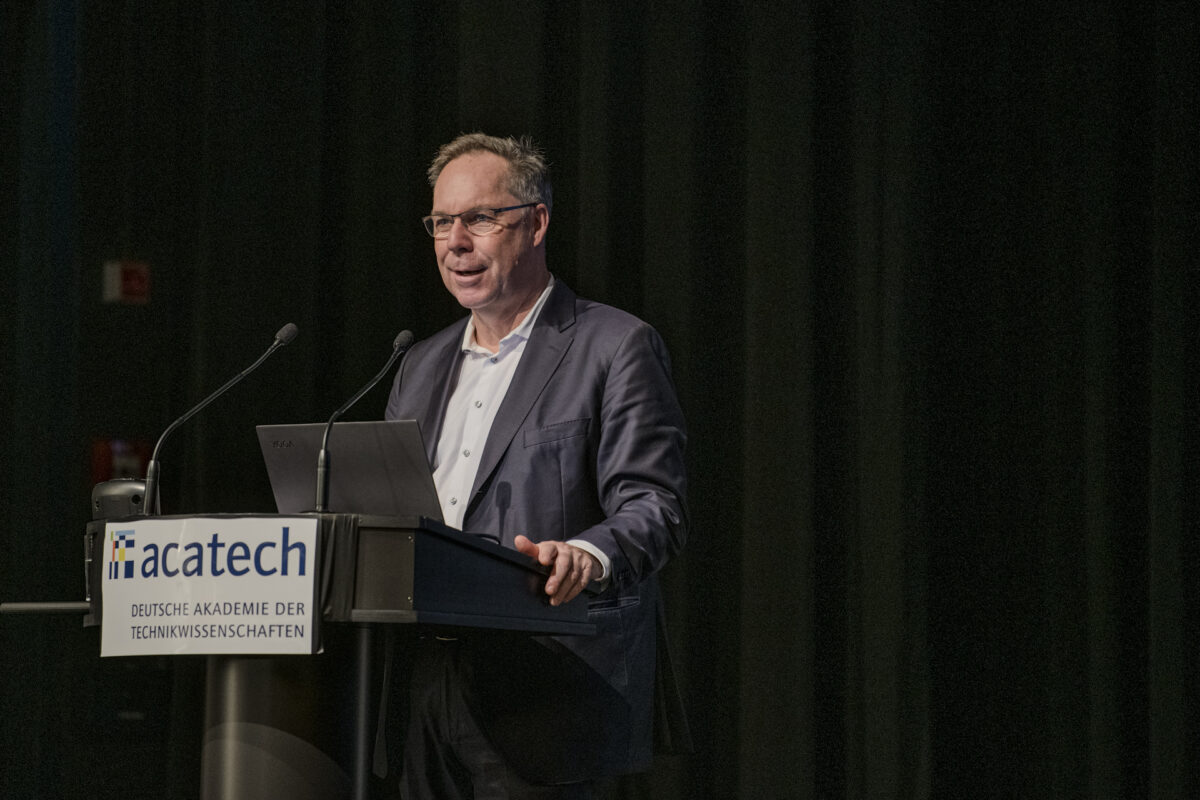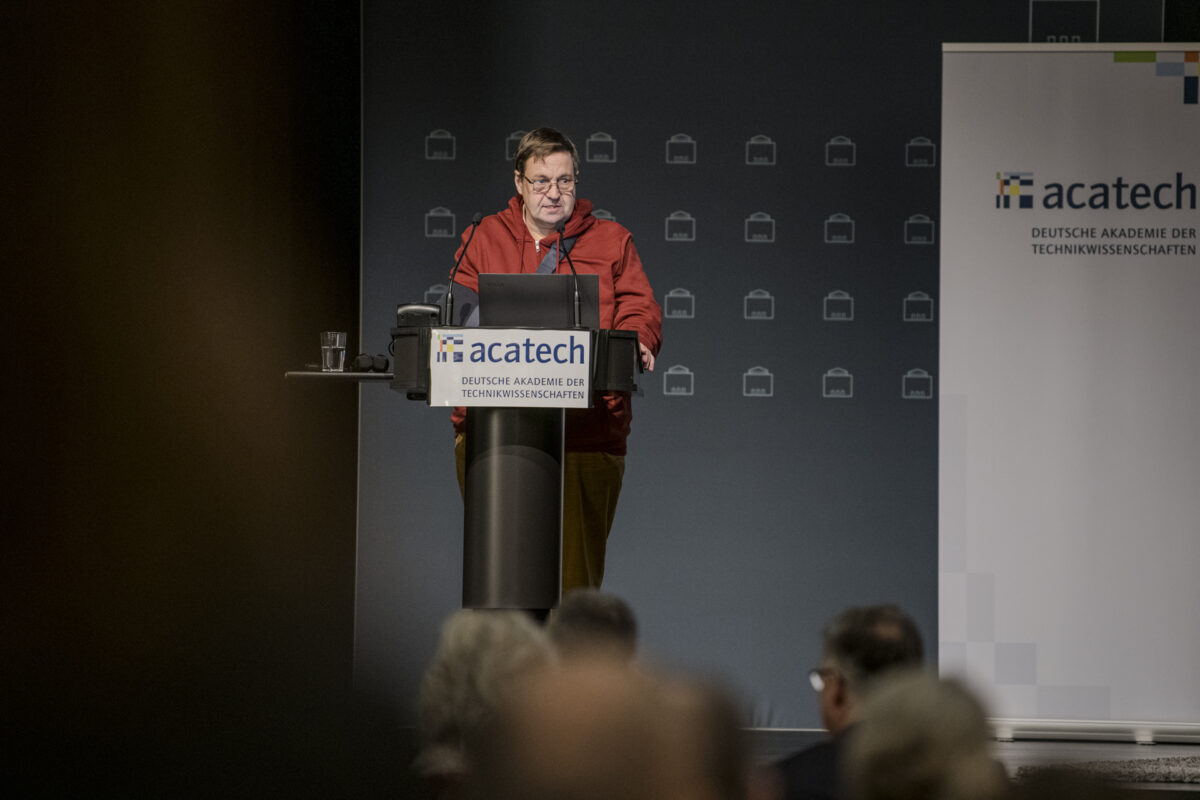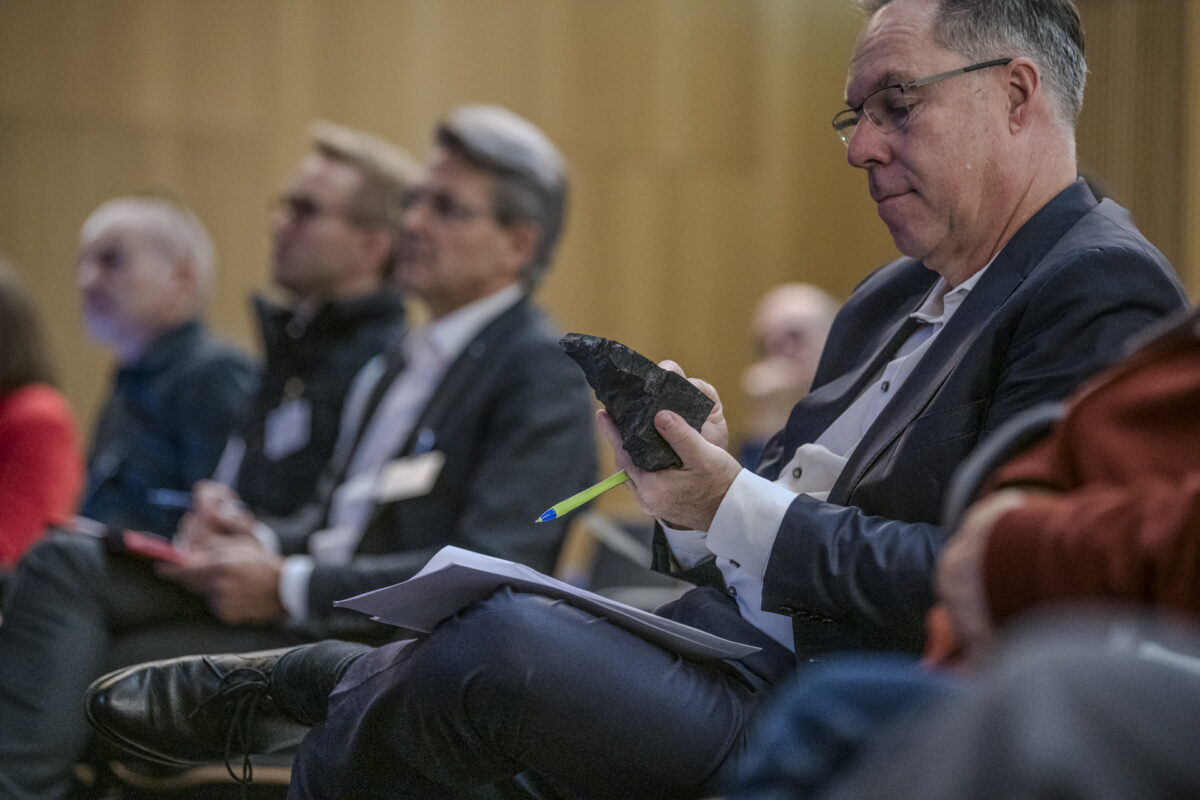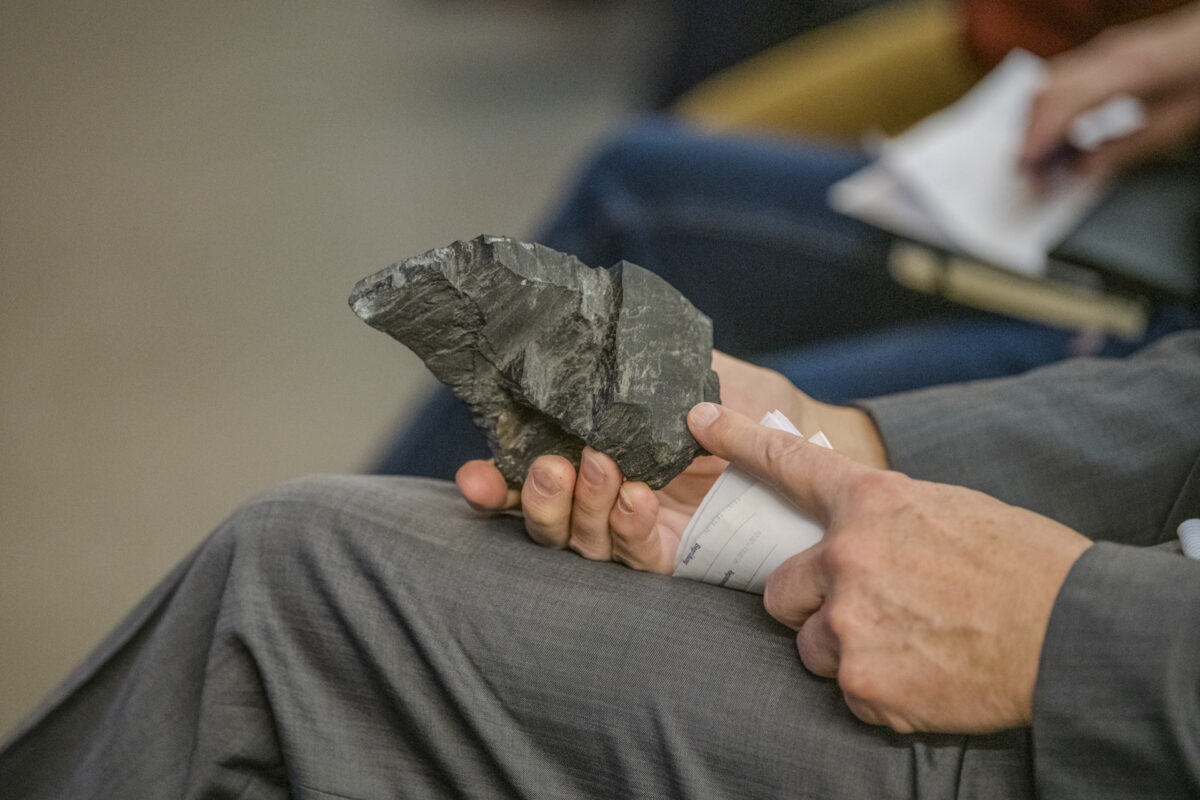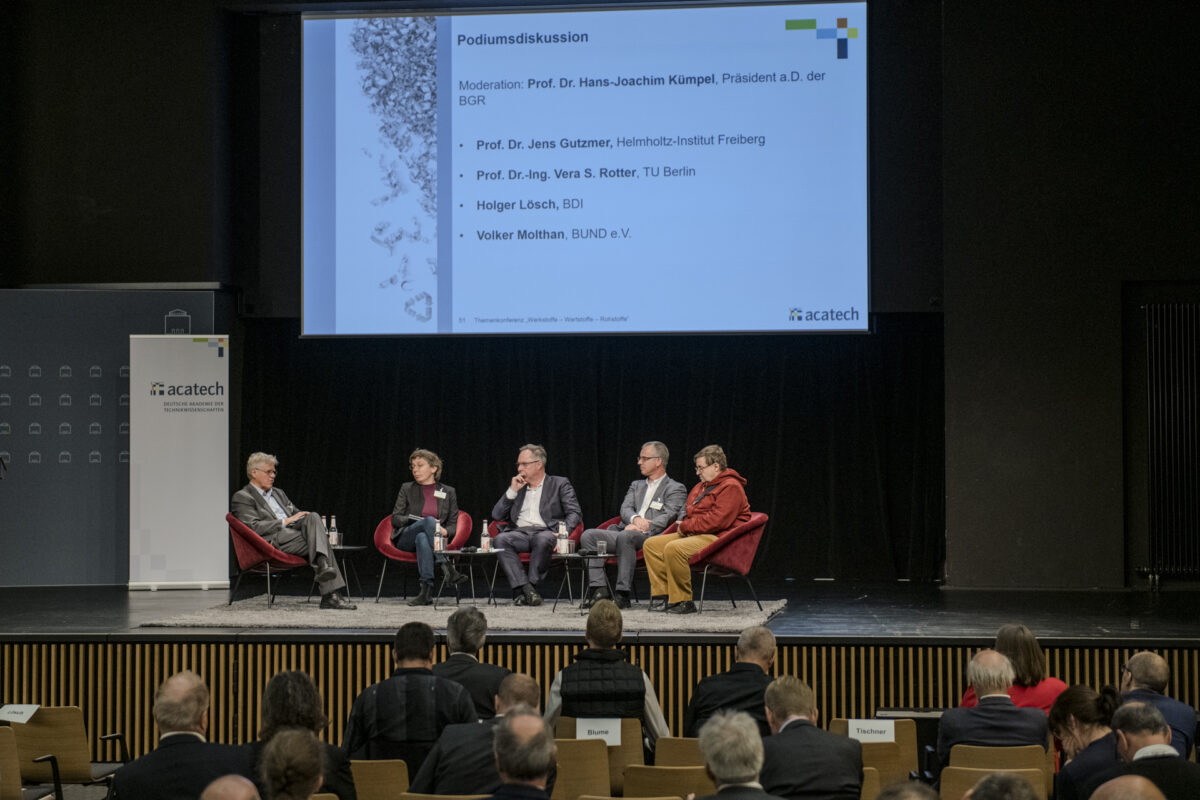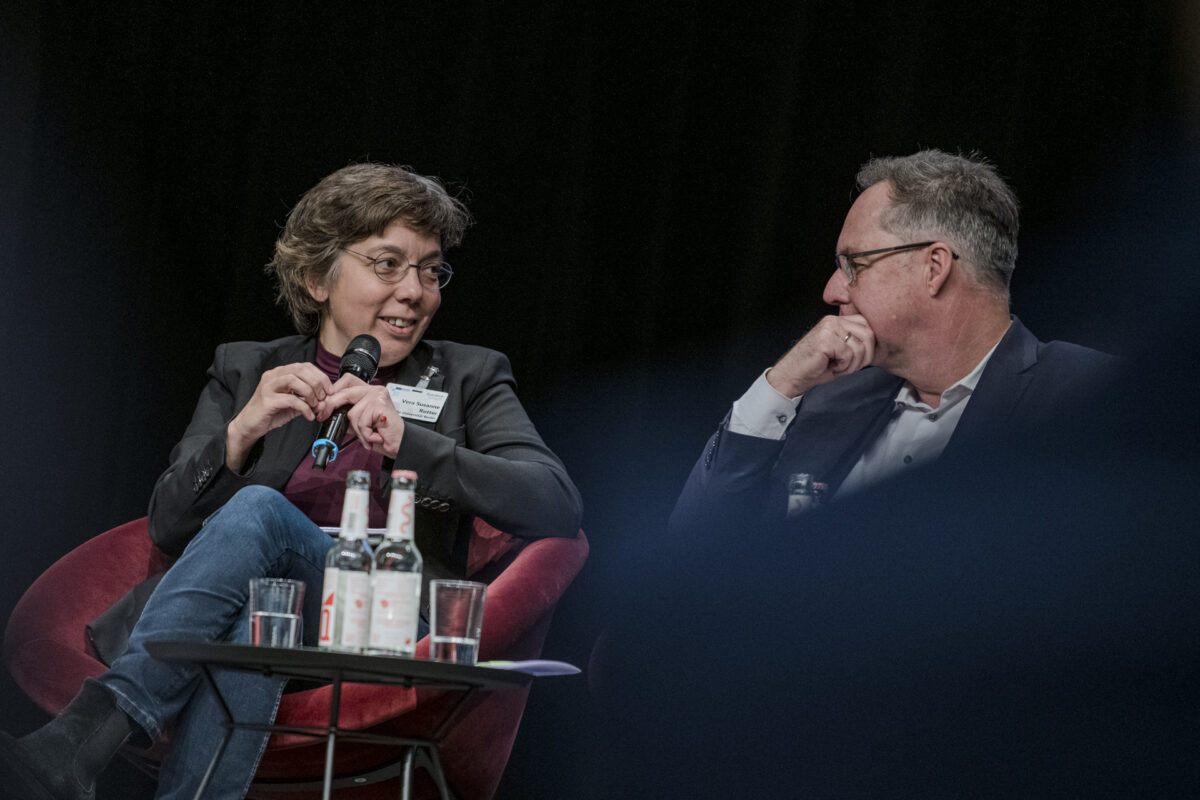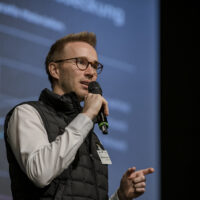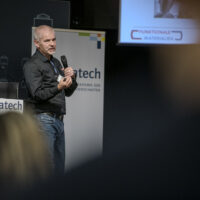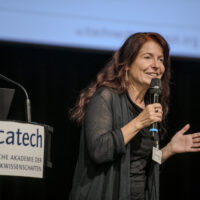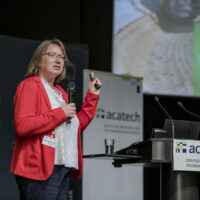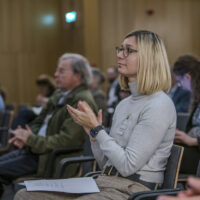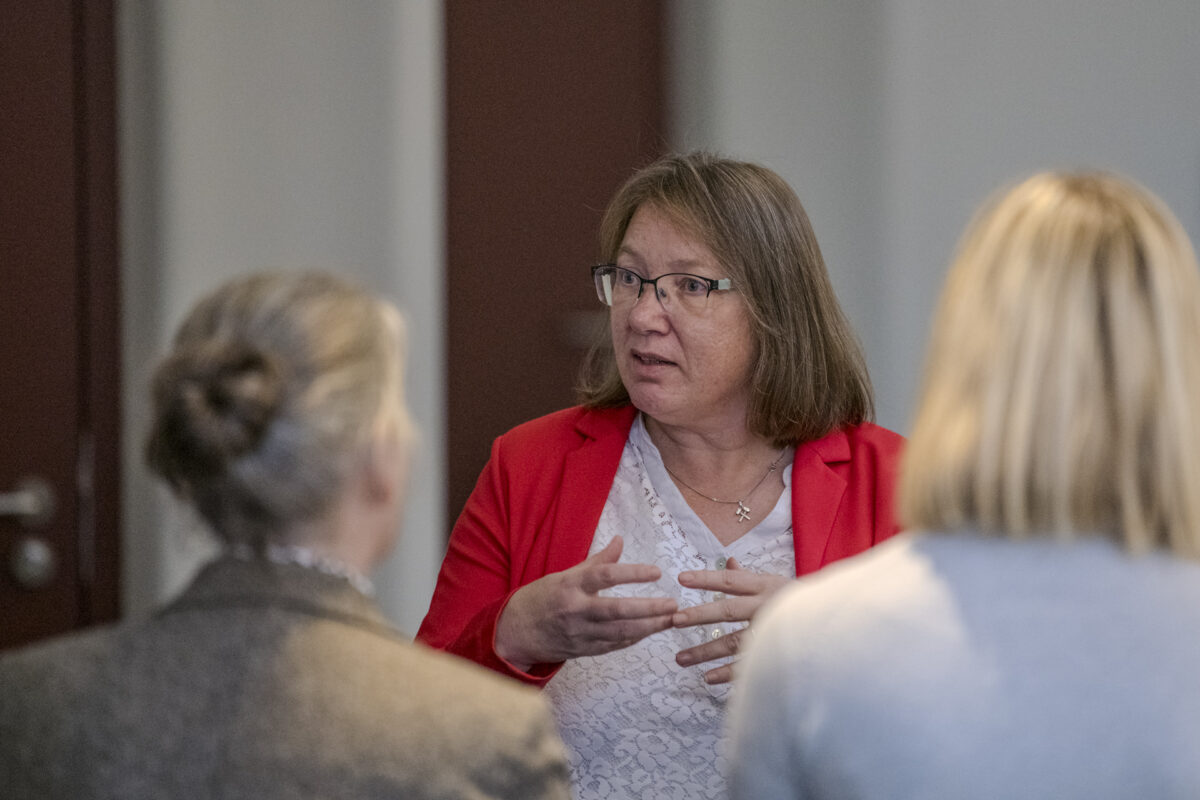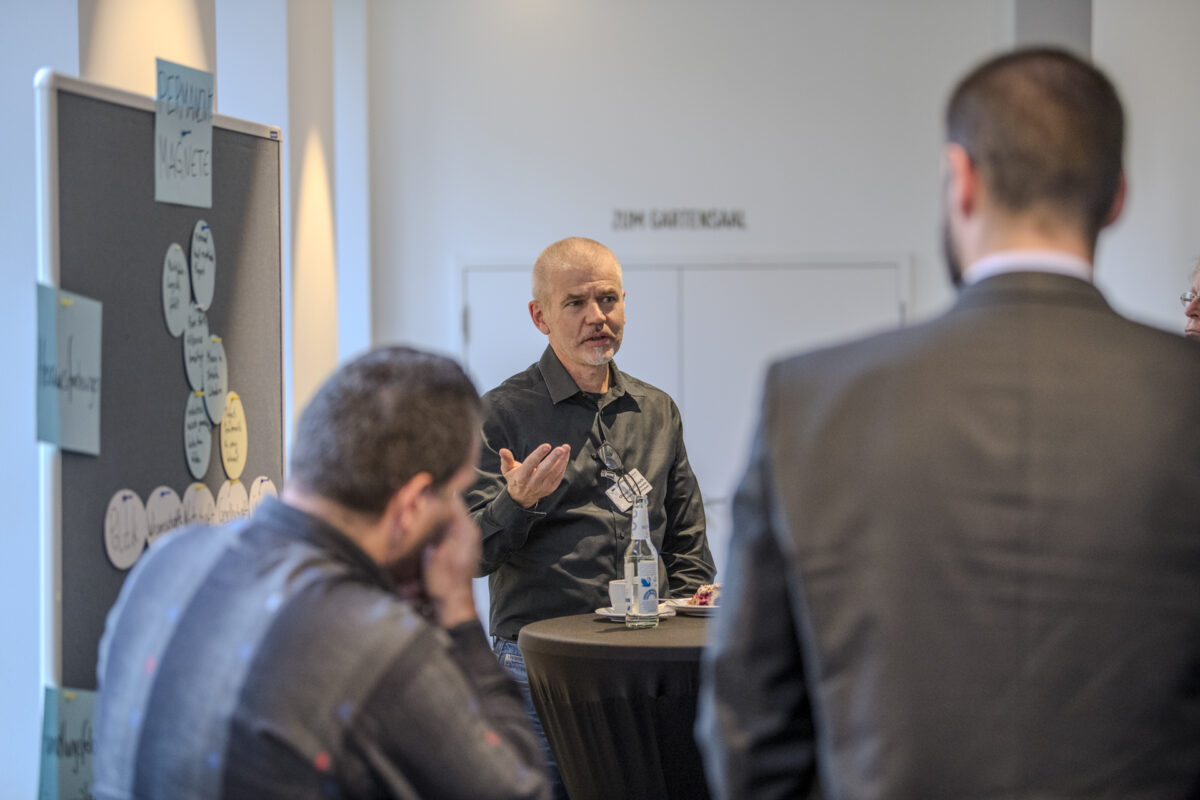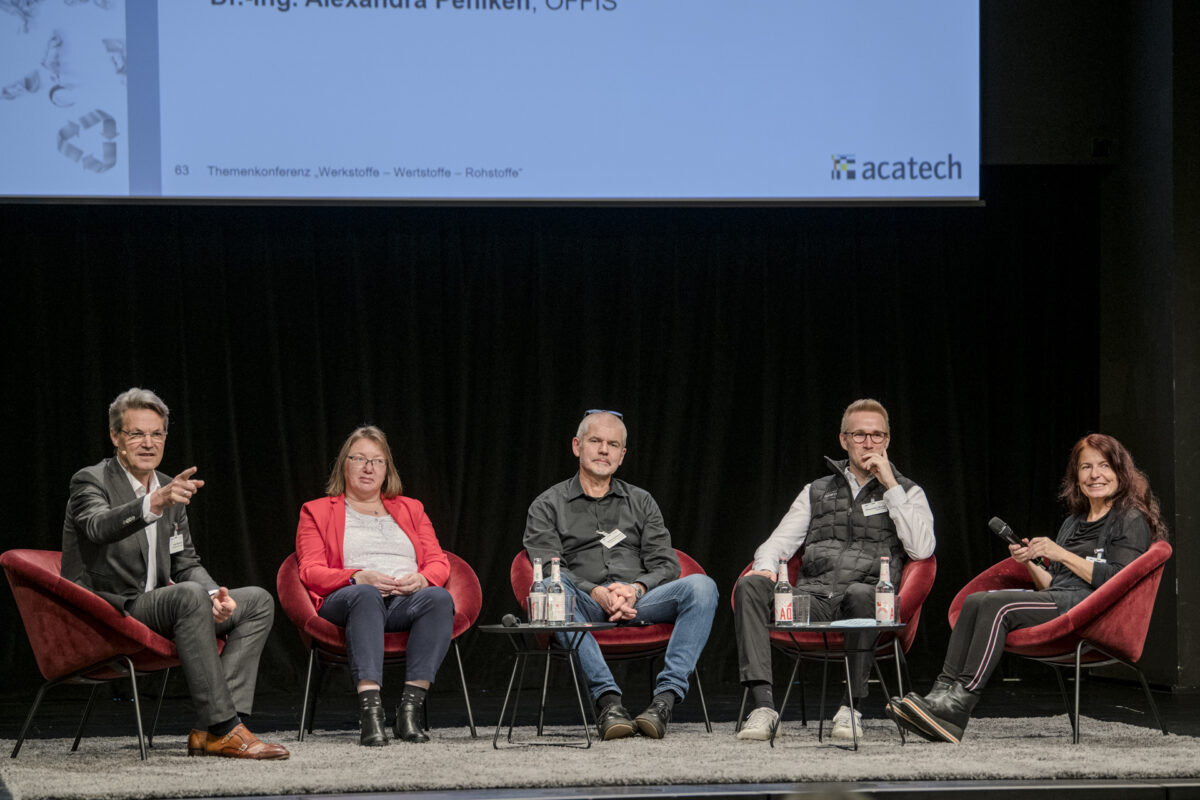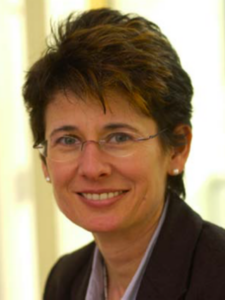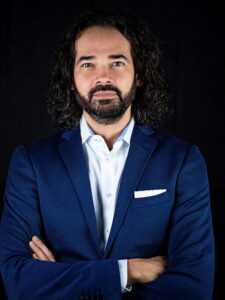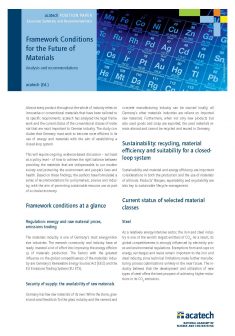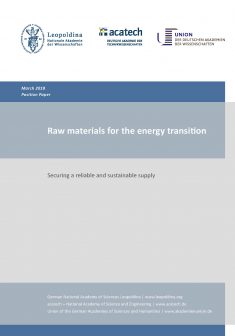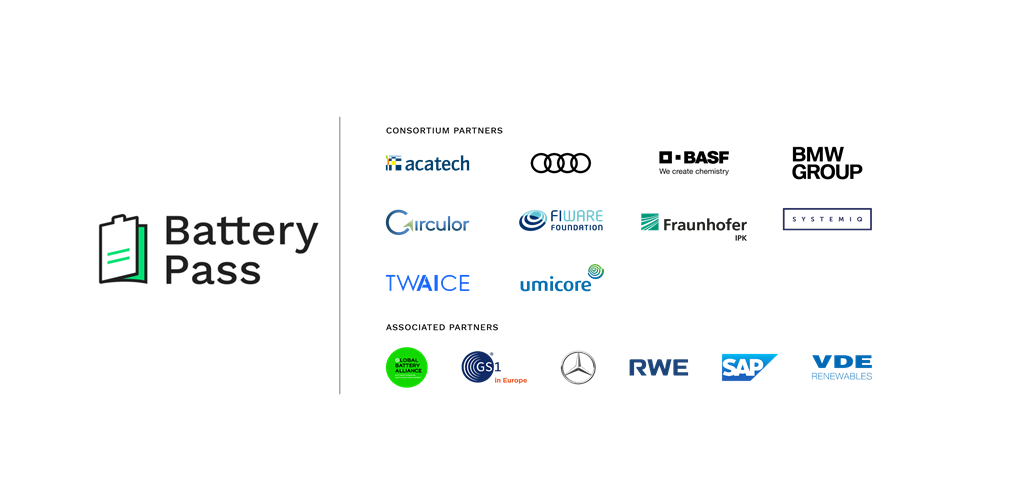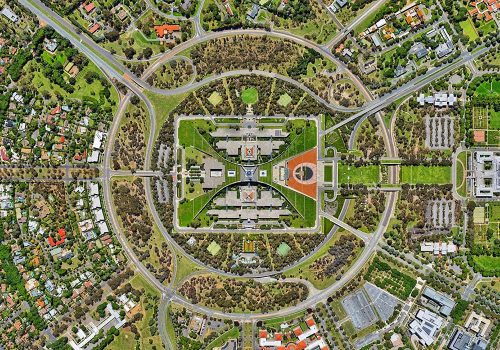Sustainable and resilient supply of raw materials: how materials can be turned back into valuable resources
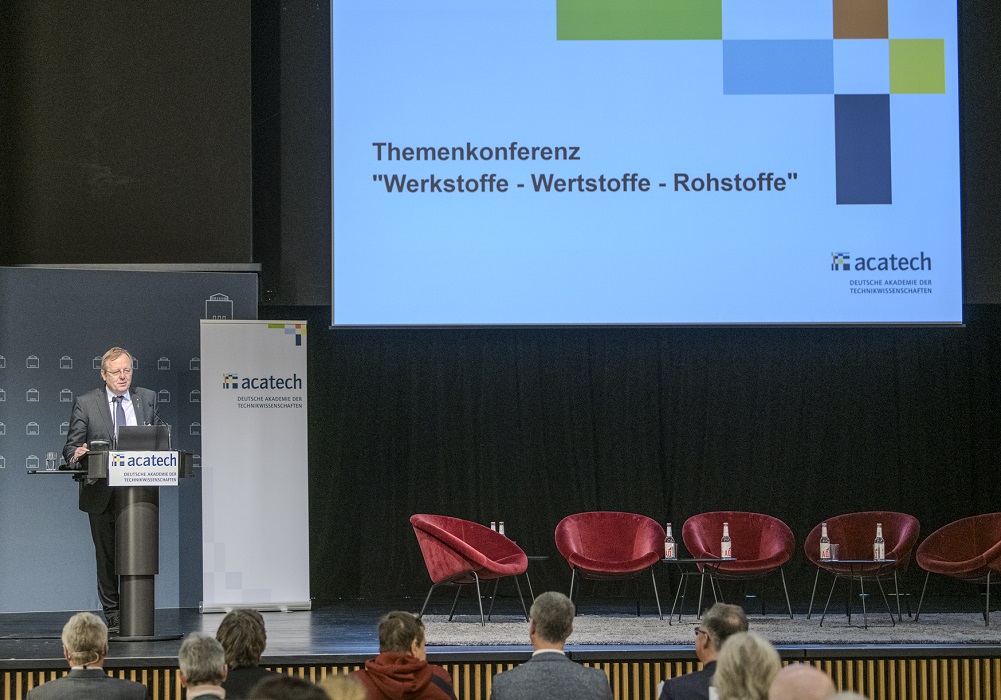
Munich, 09 November 2023
The availability of critical metal raw materials is increasingly affecting not only the competitiveness but also the capacity of Germany and its international partners to innovate. How can greater independence, resilience and sustainability of the raw materials supply be achieved? What potential do secondary raw materials and recyclable material systems hold? These questions were discussed by experts from science, business and society with a specialist audience at the acatech topic conference “Werkstoffe – Wertstoffe – Rohstoffe” (materials – reusable materials – raw materials) in Amerikahaus Munich. acatech President Jan Wörner summed up in these words: secondary raw materials and the establishment of a comprehensive circular economy must play an ever greater role.
In his welcoming address, acatech President Jan Wörner painted a clear picture of how important a holistic approach is: “Raw materials supply is a key topic when it comes to the future of Germany and Europe as centres of business and innovation. We can overcome critical dependencies by creating alternatives while – alongside the primary raw materials – making increasing use of secondary raw materials as material sources of the future as well as applying reduction strategies. We have to replace linear value chains with flexible value-creation networks with many alternative connections and routes. Digitalisation is a key instrument for establishing an intelligent, comprehensive circular economy. In this way we can uncouple economic growth and security of prosperity from resource consumption.”
The conference started with the block themed “primary and secondary raw materials”, with four speakers giving a comprehensive overview:
- Jens Gutzmer (Director of the Helmholtz Institute Freiberg for Resource Technology) dealt in-depth with the challenges of primary raw material availability based on the example of copper. He said that a deep understanding at societal level for our requirement for raw materials and where they come from must be fully incorporated into the school curriculum.
- Vera S. Rotter (Professor of Circular Economy and Recycling Technology at TU Berlin) continued the discussion, focusing on secondary raw materials. 16% of raw material consumption in Germany is currently covered by secondary raw materials. So the circular economy and the greater use of secondary raw materials offer huge potential, which must be realised.
- Holger Lösch (Deputy Director General of the BDI) focused on the impact of a circular economy on value-creation models, jobs and climate targets in his speech. He called for a full commitment to innovations at all levels. The realisation of a circular economy is a significant challenge and requires a systematic approach.
- Volker Molthan (spokesman of the federal working group “Waste & Raw Materials” Bund für Umwelt- und Naturschutz Deutschland e.V.) closed the first block of speeches with an analysis of the requirements of society. Expanding the circular economy requires more than just recycling. Rather, we need to enter a post-growth economy and also place greater emphasis on avoidance. If we lived according to the principle of “quality over quantity” we could effectively reduce the use of resources.
The subsequent panel discussion was moderated by spokesman of the acatech Energy and Resources topic network Hans-Joachim Kümpel (President [retd] of the Federal Institute for Geosciences and Natural Resources). The debate threw up interfaces between and interesting approaches to the four individual keynote speeches.
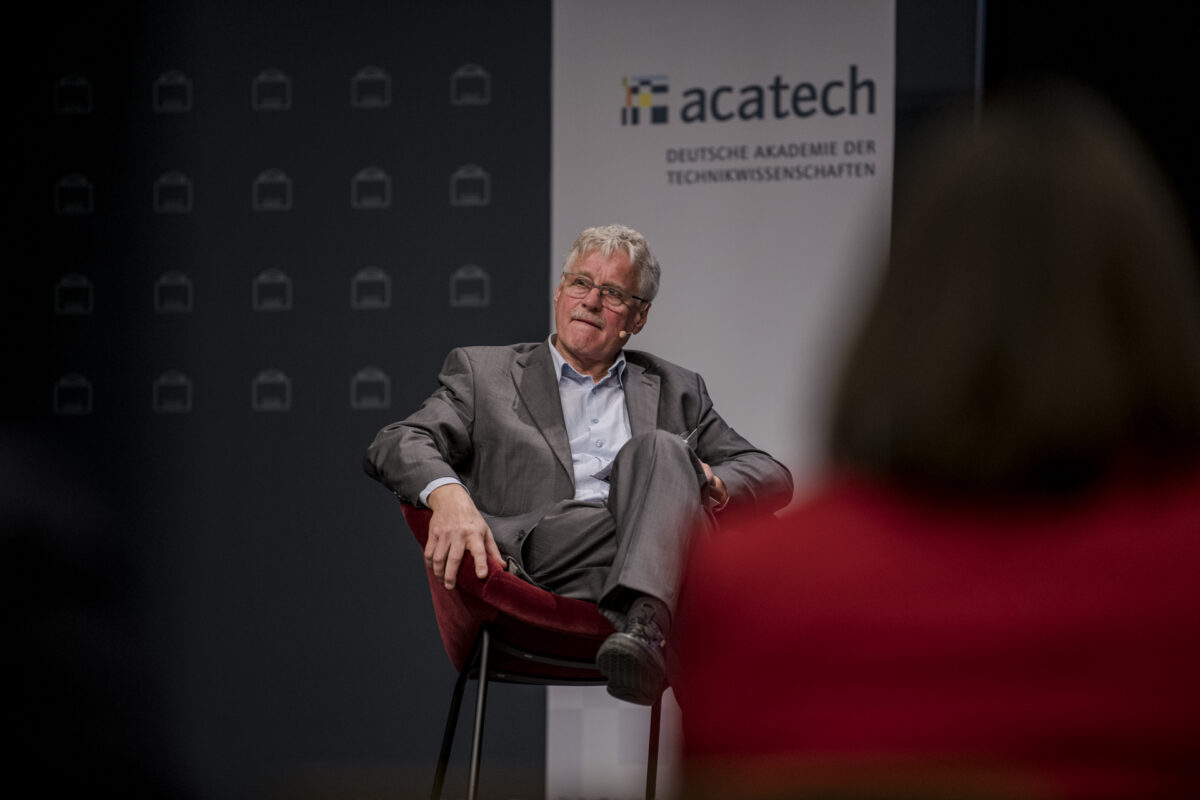
“In light of the growing demand, it was very clear to us that, in the medium term, both the extraction of primary raw materials and the establishment of a comprehensive circular economy are very important. Sustainability in relation to raw materials supply will mean integrating economic, ecological and societal sustainability targets – from mining to the use phase and on to recycling. However, we also have an obligation to ensure transparency and to emphasise scientific findings in the discourse,” said Hans-Joachim Kümpel.
Recyclable material systems for practical solution strategies
The second block delved deeper into recyclable material systems focusing on metal raw materials.
- Maximilian Blume (Business Developer at tozero GmbH) went into the potential of battery recycling and related processes from the point of view of a start-up. Technologically, lithium-ion battery recycling is a path towards Europe’s resource independence for battery materials in the long term.
- Oliver Gutfleisch (Professor for Functional Materials at TU Darmstadt) next turned the spotlight onto permanent magnets. Permanent magnets are installed in many devices and machines across all sectors, including hard disc drives, electric motors and wind turbines. Magnets made from alloys of rare earths such as neodymium are especially powerful and sought-after. He gave the example of the potential of such magnets in recycling, the rate of which is only 1% currently.
- Finally, the speech of Ursula Tischner (Professor of Circular Design at Wilhelm Büchner Hochschule) dealt with product design. She drew attention to the importance of sustainably designed products. The ability to disassemble/dismount and repair as well as reuse and recycle a product must be factored in from the very start at the design stage. She explicitly mentioned the importance of the entire life cycle in product development considerations.
- Alexandra Pehlken (Group Manager of R&D Group Sustainable Manufacturing Systems, OFFIS) gave the final keynote speech of this block of topics. She spoke about the role of digitalisation in the raw material cycle, including the sharing of information about production between various stakeholders. In addition, she mentioned the importance of education and suitable methods of raising awareness and bringing about acceptance as early as the school days by covering the subject area in a suitable fashion.
Topic groups bring the participants into the conversation
Guests were able to speak directly to the keynote speakers in the topic groups. In these moderated round tables, challenges and possible solutions were identified and discussions held on what is required of politics, science, business and society. The results were then presented to the entire audience in the panel discussion that followed. “The topic conference showed that we have many means available to us to make raw materials, resources and ground-breaking high-performance materials recyclable. Our task will be to use in an integrated and confident manner and to put into practice consistently the extensive scientific and technological expertise available to us. Germany and the EU need a systematic approach that covers the chain from raw material to materials, products and on to recycling,” said Frank Mücklich, Director of the Material Engineering Center Saarland of Saarland University and spokesman of the acatech topic network “Materials Science and Engineering” in conclusion.
